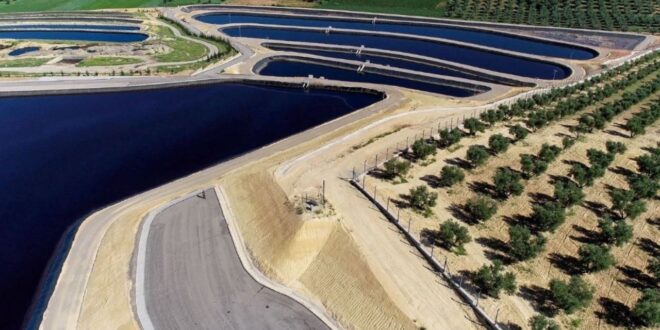As the olive oil production season begins, the issue of olive mill wastewater, known as “Mourj,” resurfaces as a major environmental challenge in the Fes-Meknes region, one of Morocco’s leading olive oil-producing areas.
This byproduct of olive pressing causes significant disruptions to water quality and persistent environmental degradation, making it a long-standing concern for local authorities and stakeholders, especially due to its direct impact on wastewater treatment plants.
In response, the Ministry of the Interior, in collaboration with the Autonomous Water and Electricity Distribution Agency of Fes (RADEEF), launched a field program in 2023 to address the issue. This program focuses on systematically collecting Mourj to prevent environmental damage to the Sebou Basin and protect water resources from pollution. These efforts coincided with the completion of the hydraulic highway connecting the Sebou and Bouregreg basins, further bolstering the strategy to tackle this challenge.
Abdellah Qabbab, an engineer responsible for industrial treatment facilities, highlighted that the urgent project, implemented at a cost of 548 million dirhams, represents a critical step in mitigating pollution from olive mills. The project includes the establishment of seven stations equipped with 28 evaporation basins distributed across the provinces of Fes, Sefrou, Moulay Yacoub, and Taounate. Spanning 100 hectares, these basins receive Mourj directly from olive mills via tanker trucks, ensuring effective pollution control.
Qabbab also noted that annual Mourj production reaches 150,000 cubic meters, accounting for 80% of industrial pollution in the Sebou Basin during the olive oil season. Previously, this led to the shutdown of Fes’s drinking and wastewater treatment plants for over three months.
Environmental reports emphasize the catastrophic impact of Mourj on water resources, with just one liter polluting 1,000 liters of freshwater. One cubic meter can render 360,000 cubic meters of clean water undrinkable due to harmful chemical compounds like phenols, which severely damage soil and groundwater, especially when carried by irrigation water or rain.
Observers have commended the collaborative efforts between olive mill owners and local authorities in adopting environmentally friendly practices, such as transporting Mourj to designated treatment and evaporation basins. This approach reduces the reckless disposal of waste into waterways, aligning with the urgent need to preserve natural resources amid the country’s ongoing water stress crisis.
These initiatives represent a vital step in upgrading the olive oil production sector, a key economic pillar for the development of the Fes-Meknes region. By implementing sustainable policies and environmentally conscious practices, stakeholders aim to balance resource exploitation with conservation, ensuring the long-term viability of this promising sector while supporting the region’s comprehensive development.
source : fesnews media
 فاس نيوز ميديا جريدة الكترونية جهوية تعنى بشؤون و أخبار جهة فاس مكناس – متجددة على مدار الساعة
فاس نيوز ميديا جريدة الكترونية جهوية تعنى بشؤون و أخبار جهة فاس مكناس – متجددة على مدار الساعة













